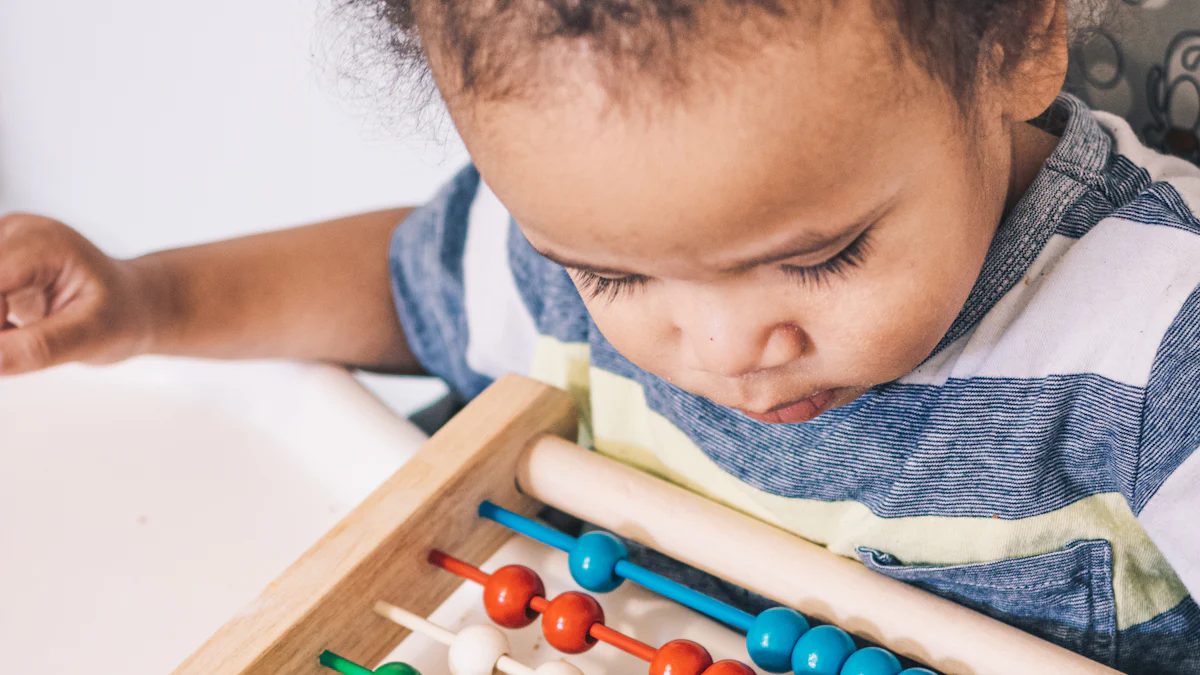Raising Resilient Kids in an Ever-Changing World

The world constantly changes, presenting new challenges every day. This challenging world requires children to develop resilience. Resilience empowers kids to adapt and thrive despite obstacles. Raising Resilient Kids equips them with the strength to face life's uncertainties. The challenging world demands adaptability and courage. Children need resilience to navigate the complexities of this ever-evolving world. The challenging world shapes the future, and resilience becomes a vital skill. Parents play a crucial role in fostering resilience in children. The world offers endless possibilities for those who embrace resilience.
Understanding Resilience
Defining Resilience
Resilience represents the ability to bounce back from adversity. Children who develop resilience can handle life's ups and downs with grace. Resilience empowers children to face challenges head-on.
Importance in Child Development
Resilience plays a crucial role in child development. Children with resilience possess the tools to manage stress effectively. Resilient children often demonstrate higher levels of emotional intelligence. These children can navigate social situations with ease. Resilience equips children with the skills needed for future success.
Resilience in an Ever-Changing World
The world constantly evolves, presenting new challenges daily. Resilience helps children adapt to these changes. Children with resilience can thrive in uncertain environments. Resilience prepares children for the unexpected twists life may bring. Understanding resilience becomes vital in today's fast-paced world.
Science and Wisdom Traditions
Insights from Research
Research provides valuable insights into resilience. Studies show that resilience can be cultivated through practice. Scientists have identified key factors that contribute to resilience. These factors include strong relationships and a positive mindset. Understanding resilience through research guides effective parenting strategies.
Traditional Approaches
Wisdom traditions offer timeless lessons on resilience. Ancient teachings emphasize the importance of inner strength. Many cultures value stories of triumph over adversity. These stories inspire children to develop resilience. Traditional approaches provide a rich source of guidance for fostering resilience.
Modeling Resilience as a Parent
Demonstrating Coping Strategies
Managing stress effectively plays a crucial role in resilience. Parents can show children how to handle stress by maintaining calmness during challenging times. Kids observe and learn from these actions. Practicing mindfulness helps in managing stress. Mindfulness involves focusing on the present moment. This practice reduces anxiety and promotes emotional well-being.
Showing emotional regulation is another key aspect. Parents can model this by expressing feelings in healthy ways. Children benefit from seeing adults manage emotions constructively. This approach teaches kids the importance of understanding and controlling their emotions. Mindfulness practice supports emotional regulation. It encourages awareness of thoughts and feelings without judgment.
Leading by Example
Sharing personal challenges with children offers valuable lessons. Parents can discuss past experiences where they overcame difficulties. These stories inspire kids to face their own challenges with courage. Real-life examples provide insights into resilience and parenting styles. Kids learn that setbacks are part of life and can be overcome.
Discussing problem-solving approaches helps children develop critical thinking. Parents can involve kids in finding solutions to everyday problems. This practice encourages creativity and independence. Children gain confidence in their ability to tackle obstacles. Mindfulness plays a role here too. It fosters a calm and focused mindset, essential for effective problem-solving.
"Reflecting on my niece's battle with cancer taught me the power of resilience," shared an anonymous individual. "Family support and open discussions helped us navigate those tough times."
Raising resilient children involves modeling resilience and mindfulness. Parents who demonstrate coping strategies and lead by example equip their kids with essential life skills. In an ever-changing world, these practices prepare children to thrive.
Encouraging Problem-Solving

Fostering Critical Thinking
Asking Open-Ended Questions
Encourage children to think deeply by asking open-ended questions. These questions stimulate curiosity and promote critical thinking. Kids learn to explore different possibilities and solutions. This approach helps them bounce back from setbacks with confidence. Parents can guide children in considering various outcomes.
Encouraging Exploration
Support children in exploring new ideas and experiences. Exploration builds resilience and adaptability. Kids learn to face challenges with enthusiasm. Encourage them to try new activities and hobbies. This process helps them bounce back from setbacks and develop problem-solving skills.
Supporting Independence
Allowing Safe Risks
Allow children to take safe risks. This practice builds confidence and independence. Kids learn to navigate challenges on their own. Parents provide guidance while letting children make decisions. This experience helps them bounce back from setbacks with greater strength.
Celebrating Efforts and Attempts
Celebrate children's efforts and attempts, not just successes. Recognize the courage it takes to try something new. This encouragement fosters a growth mindset. Kids learn that setbacks are part of life and can be overcome. Parents play a crucial role in raising resilient children who can bounce back from setbacks.
Teaching Adaptability and Tolerance for Failure
Embracing Change
Discussing Change Positively
Parents can help children embrace change by discussing it positively. Change presents opportunities for growth and learning. Kids who see change as a chance to grow develop resilience. Parents can share stories of how change led to positive outcomes. These stories inspire kids to face new challenges with optimism. Kids learn that change is a natural part of life.
Practicing Flexibility
Flexibility is a key component of resilience. Encourage children to adapt to new situations. Practice flexibility by introducing small changes in daily routines. This helps kids become comfortable with uncertainty. Kids who practice flexibility bounce back from setbacks more easily. Parents can model flexibility by showing how they adjust to unexpected events. This practice builds a resilient mindset in children.
Learning from Mistakes
Normalizing Failure
Failure is a natural part of the learning process. Parents can teach children that everyone makes mistakes. Normalize failure by discussing famous people who faced adversity. These stories show that setbacks are stepping stones to success. Kids learn that failure does not define them. Resilient children see mistakes as opportunities to learn and grow.
Reflecting on Lessons Learned
Reflection helps children understand the lessons hidden in mistakes. Encourage kids to think about what went wrong and what they can do differently next time. This practice fosters critical thinking and problem-solving skills. Kids who reflect on their experiences bounce back stronger. Parents can guide children through this process by asking open-ended questions. Reflection becomes a valuable tool in building resilience.
Building a Stable Home Environment
Creating Consistent Routines
Establishing daily schedules provides children with a sense of security. Kids ages thrive when they know what to expect each day. Regular routines help in building resilience by offering stability. A structured environment allows kids to focus on lifelong learning and personal growth.
Maintaining family traditions strengthens bonds. Traditions create a sense of belonging and identity. Families who celebrate together nurture sibling relationships and foster unity. These shared experiences contribute to building resilience in children.
Providing Emotional Support
Encouraging open communication builds trust within the family. Kids feel safe expressing their thoughts and feelings. Open dialogue helps children develop emotional intelligence. This practice supports lifelong learning and adaptability.
Offering reassurance and love creates a nurturing environment. Children need to know they are loved unconditionally. Emotional support helps kids to thrive even during challenging times. Families who provide this foundation enable children to face adversity with courage.
Anonymous shared, "Opens Doors provides peace of mind that a mortgage or rent payment has been taken care of, allowing families to focus solely on their child."
Building resilience involves creating a stable home where kids ages can grow. A supportive environment encourages lifelong learning and nurtures sibling relationships. Families who prioritize these elements guide their children toward a resilient future.
Fostering Future Resilience
Practical Applications and Examples
Real-Life Scenarios
Over time, Chris learned to embrace change and face challenges with courage.
Mark learned to reflect on his experiences and view failures as opportunities for growth. Through consistent practice, Mark developed a resilient mindset that enabled him to overcome obstacles and achieve success.
Personal Anecdotes
Personal anecdotes offer powerful insights into building future resilience. Sharon Salzberg recently spoke about her own journey of overcoming adversity. Sharon faced significant challenges in her early life but discovered the power of mindfulness and meditation. Her experiences highlight the importance of cultivating inner strength and resilience. Sharon's teachings inspire individuals to embrace change and navigate life's uncertainties with grace.
Garrison Talks at the Garrison Institute often feature stories of resilience and transformation. One such story involves Garrison, who found solace in community support during difficult times. The Opens Doors Foundation provided Garrison's family with stability, allowing them to focus on their child's recovery. This experience underscores the significance of a supportive environment in fostering future resilience.
Resources and Support
Books and Guides
Books and guides serve as valuable resources for building resilience. Sharon Salzberg offers insightful guidance through her writings on mindfulness and resilience. Her books provide practical tools for developing emotional strength and adaptability. Readers can explore techniques for managing stress and embracing change.
The American Psychological Association recommends several guides for parents seeking to nurture resilience in their children. These guides offer evidence-based strategies for promoting emotional well-being and coping skills. Parents can find practical advice on creating a supportive home environment and encouraging problem-solving.
Online Communities
Online communities provide a platform for sharing experiences and learning from others. The JCC hosts virtual events and workshops focused on resilience-building. Participants can connect with experts and peers to exchange ideas and support each other. These communities foster a sense of belonging and empowerment.
The Garrison Institute offers online resources and discussions on resilience and mindfulness. Participants can engage in meaningful conversations and gain insights from thought leaders like Sharon Salzberg. These interactions inspire individuals to cultivate resilience and thrive in an ever-changing world.
Resilience empowers children to face life's challenges with strength and adaptability. Parents play a vital role in nurturing this essential skill. Demonstrating coping strategies, encouraging problem-solving, and fostering a stable home environment build resilience. Embrace change and learn from mistakes to grow stronger. The MBA Opens Doors Foundation exemplifies how support can alleviate burdens, allowing families to focus on well-being. Continue to inspire growth and learning in children. Equip them with the tools to thrive in an ever-changing world. Resilient children become confident, capable individuals ready for any challenge.
See Also
5 Steps to Cultivate Resilience in Your Child
Empowering Kids to Embrace Challenges and Excel
Nurturing Empathy in Kids Amidst Competition
Breaking Toxic Habits to Raise Strong, Resilient Kids
The Crucial Role of Emotional Regulation in Child Development

